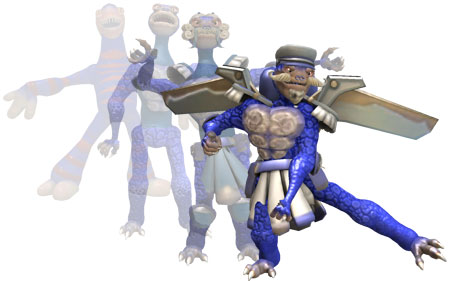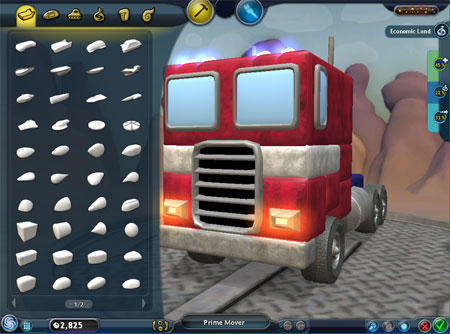
“The startling reality of Spore is that, while it sells itself as a laboratory in a box, the actual subjects of the experiment aren’t the virtual creatures, but the real players.” – Seed Magazine.
While Spore presents a muddled view of evolution, somehow managing to irritate scientists and intelligent design advocates alike, it does perhaps fare better in representing the evolution of gamers. Far from being appreciative, the gamer is likely to be irritated as well.
The main game sees players take a single cell organism originating from space and evolve it to a space-faring species. This evolution sees the player experience gameplay in five distinct stages, each derived from classic game genres. The player will go from a simple arcade game to action adventure to RTS to 4x strategy to MMO with these transitions increasing complexity and scope.
The criticism here is, much like Spore’s science, Spore’s gameplay has the trappings but not the essence. The Cell and Civ stages may be evocative of classic games like Pac-Man and Civilization but frustratingly, Spore waters down the gameplay to such a degree it does a poor job in conveying the appeal of the originals. Spore may draw upon Web 2.0, but it is not, as gamers hoped it would be, Game 2.0.
It is not in science and gameplay that evolution is best represented in Spore; it is the gamer who undergoes the greatest evolution while playing the game.
Gamer 2.0
The original Spore saw the beginning of the gamer’s evolution from consumer to creator with the game encouraging the gamer to produce new assets. One could while away plenty of time creating creatures, designing buildings, juggling form and function when crafting vehicles, and many have done exactly that. As of writing, Spore’s userbase of nearly 3 million gamers have produced and shared a staggering 113 million creations with the online database growing at a rate of 100-plus creations every minute.
The tools provided to accomplish that are Spore’s greatest achievement. A decade ago, it would have taken an artist a lengthy CGI and CG animation course with clunky software to create what a novice could do with Spore’s tools today.

The release of the Galactic Adventures expansion sees the gamer evolve further, now going from player to game designer to publisher.
As designer, the gamer must consider game mechanics, ensure playability, conduct playtesting, finetune difficulty and anticipate player behaviour when creating adventures. Along the way, gamers will need to make the tough decisions game designers themselves must make. Should the adventure be easy and pander to the lowest common denominator or provide a challenge that satisfies those who complete it? Should the design follow current trends or take the path less taken?
As publisher, the gamer will fret over marketing, complain about unfair ratings, encounter piracy, feel the need for better copy protection, and perhaps ultimately come to the realisation that the worst thing about gaming is gamers.
This improbable (and it must be said, darkly comic) evolution of the gamer, from someone typically grumbling about publishers to a publisher grumbling about gamers, is perhaps Spore’s second greatest achievement.
